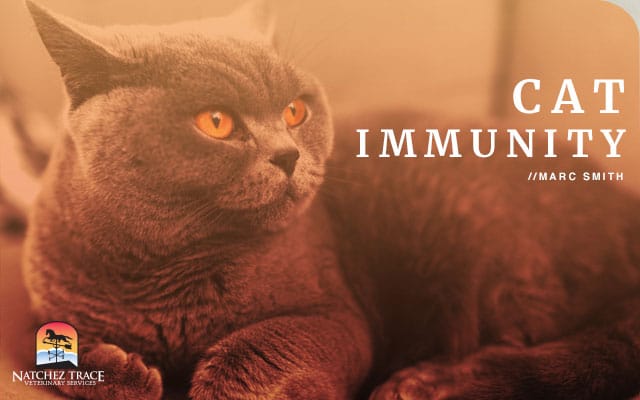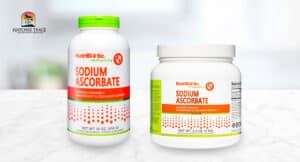On the other hand, older cats suffer immune problems as their immune system’s normal functioning declines with age.
Sometimes pet parents choose cat immune boosters to be proactive. They want to prevent health problems before they occur.
The following immune boosters for cats can help young and old alike, helping weak cats fight off infections like cats with more robust immune systems can.
And, immune boosters give healthy cats an even better edge in life.
Our 5 Favorite Immune Boosters For Cats
The immune system protects your cat’s body from outside invaders. Outside invaders include germs such as bacteria, viruses, fungi, and toxins.
Your cat’s immune system consists of different organs, cells, and proteins that work together to destroy outside invaders.
If your cat’s immune system isn’t functioning at full capacity, cat immune boosters help the body strengthen its defense against invaders.
1. Sodium Ascorbate Vitamin C
Sodium ascorbate vitamin C is the easiest cat immune booster to obtain and use. It is an over-the-counter form of Vitamin C which boosts the immune system and provides antihistamine and anti-inflammatory effects.
Elevated vitamin C levels aid immune system regeneration, simultaneously destroying bacteria and viruses.
You must use the sodium ascorbate form of vitamin C. Do not use Ascorbic Acid, the most common form of vitamin C.
Sodium Ascorbate is neutral pH, so it does not cause gastrointestinal distress as ascorbic acid does in higher doses. Ascorbic Acid is not recommended due to its acidic pH.
The standard supplement dosage for adult cats is 1/8 (500 mg) twice daily in food. For kittens and cats under 7 lbs, start at 1/16 tsp (250mg) twice daily in food.
Finding the sodium ascorbate form of vitamin C is usually challenging in the drugstore, so we recommend purchasing it online.
For large pets, the 2.2 lb size is the better deal, for small pets (under 25 lbs), the 16 oz bottle should last a couple of months.
Sodium ascorbate also helps cats suffering from constipation. If your cat is still constipated on 1/8 teaspoon, try upping the dose to 1/4 teaspoon to loosen the stool.
How to Titrate to Bowel Tolerance
“Titrating to bowel tolerance” is the best way to find your cat’s exact dose of sodium ascorbate.
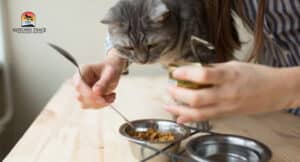
Titrating to bowel tolerance simply means starting at a low dose and gradually increasing the dose until your pet develops loose stools.
Once your pet’s stool becomes loose, drop back to the dose you gave just before the loose stool. This is your pet’s “bowel tolerance.”
For tiny puppies and kittens, we recommend starting at 1/16 of a teaspoon sprinkled in food twice daily and increasing by 1/16 teaspoon per day until bowel tolerance is reached.
For pets under 25 lbs, we recommend starting at 1/8 of a teaspoon sprinkled in food twice daily and increasing by 1/8 teaspoon per day until bowel tolerance is reached.
For pets over 25 lbs, we recommend starting at 1/4 of a teaspoon twice daily and increasing by 1/4 teaspoon per day until bowel tolerance is reached.
Don’t worry, vitamin C is water-soluble. In other words, whatever your pet doesn’t need is excreted, hence the loose bowels when discovering your pet’s tolerance.
If your pet has loose stools more than two days in a row at any time, reduce the dose by one increment.
After you’ve reached your pet’s bowel tolerance, once every week or two, try upping the dose by one increment to see if your pet needs a little more vitamin C.
Stay at the higher dose if your pet does not develop loose stools.
If your pet develops loose stools, simply return to the regular dose.
2. Acemannan
Acemannan is an immunomodulatory polysaccharide cat immune booster extracted from the popular healing herb Aloe Vera.
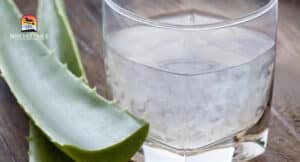
Years ago, the FDA approved injectable Acemannan for treating Fibrosarcomas and Feline Leukemia Virus (FeLV). But since injectable Acemannan is no longer available, the oral variety is your only choice.
Our clinic uses the following protocol:
Loading dose: 1 teaspoonful of oral Acemannan daily for five days.
Maintenance dose: 1/2 teaspoon daily for 4-5 weeks.
If you see an improvement in your pet, continue at a rate of 1/2 teaspoon daily.
You can buy Acemannan online and without a prescription.
3. Lysine
Lysine is an over-the-counter amino acid supplement recommended for cats suffering from FIV, upper respiratory infections, conjunctivitis, sneezing, and herpes virus.
It’s available as a gel, pill, flavored powder, or treat.
“Human” lysine brands come in tablet and capsule form
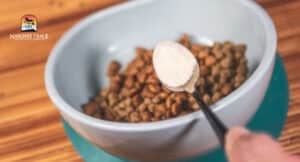
But we’ve found mixing Lysine powder into canned food is the most efficient feeding method.
The recommended Lysine dosage is 500 mg per day, given twice daily for adult cats, or 250 mg per day, given twice daily for kittens.
You can buy lysine online without a prescription.
4. Frankincense Essential Oil
Frankincense essential oil is a fantastic cat immune booster.
Cats are very sensitive to essential oils, so you must adhere to basic safety principles.
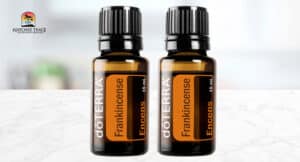
To use essential oils on your cat in a safe manner, make sure the oils are pure, unadulterated oils.
Our first choice of essential oil providers is doTERRA.
To use Frankincense on your cat, simply follow these steps:
- Place just 1-2 drops of undiluted Frankincense essential oil in your hand.
- Then, rub your hands together, allowing your palms to absorb most of the essential oil.
- Finally, stroke your cat’s body.
If you smell the essential oil on your cat’s fur, it’s working!
5. Lymphocyte T-Cell Immunomodulator (LTCI)
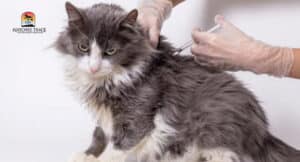
Lymphocyte T-Cell Immunomodulator (LTCI) enhances the immune system of cats suffering from Feline Leukemia Virus and Feline Immunodeficiency Virus (FeLV & FIV).
LTCI is a natural protein product and a USDA-approved treatment for cat viral diseases. This treatment requires a series of painless injections. But rest assured; it will boost your kitty’s immune system.
Learn more about the advantages of Lymphocyte T-Cell Immunomodulator.
Pairing Cat Immune Boosters With An Energetically Appropriate Diet
Immune boosters for cats are essential.
However, cat immune boosters with an energetically appropriate diet will dramatically boost your cat’s immune system.

Home-cooked diets sometimes provide the best nutrients to strengthen your cat’s immune system.
So, if you want to learn how to choose an energetically appropriate diet and cook for your cat,
Visit the recipe page at PET | TAO Holistic Pet Products.
Or if you’d like a health makeover for your cat, contact our clinic today.
People Also Ask:
- What are immune boosters for cats, and how do they work? Immune boosters for cats are supplements or medications designed to support and enhance a cat’s immune system. These boosters typically contain vitamins, antioxidants, probiotics, or herbal extracts that aim to strengthen the immune response, aiding in fighting off infections and maintaining overall health. They work by stimulating or enhancing the cat’s immune defenses against pathogens.
- When should I consider using immune boosters for my cat? Immune boosters can be considered for cats that are particularly susceptible to illnesses, such as senior cats, kittens, or those with weakened immune systems due to health conditions. They might also be beneficial during times of stress, environmental changes, or when the cat is recovering from an illness, aiming to support the immune system during these vulnerable periods.
- What types of immune boosters are safe and effective for cats? Safe and effective immune boosters for cats often include supplements rich in antioxidants like vitamin C and E, omega-3 fatty acids, probiotics, and certain herbal extracts like echinacea or licorice root. However, it’s crucial to consult with Dr. Smith before giving any supplements to your cat, as their efficacy and safety can vary based on the cat’s health status and individual needs.

